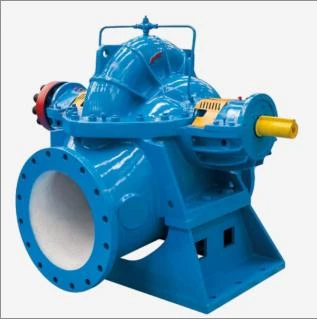TEL:
+86 13120555503
Korean
- Afrikaans
- Albanian
- Amharic
- Arabic
- Armenian
- Azerbaijani
- Basque
- Belarusian
- Bengali
- Bosnian
- Bulgarian
- Catalan
- Cebuano
- Corsican
- Croatian
- Czech
- Danish
- Dutch
- English
- Esperanto
- Estonian
- Finnish
- French
- Frisian
- Galician
- Georgian
- German
- Greek
- Gujarati
- Haitian Creole
- hausa
- hawaiian
- Hebrew
- Hindi
- Miao
- Hungarian
- Icelandic
- igbo
- Indonesian
- irish
- Italian
- Japanese
- Javanese
- Kannada
- kazakh
- Khmer
- Rwandese
- Korean
- Kurdish
- Kyrgyz
- Lao
- Latin
- Latvian
- Lithuanian
- Luxembourgish
- Macedonian
- Malgashi
- Malay
- Malayalam
- Maltese
- Maori
- Marathi
- Mongolian
- Myanmar
- Nepali
- Norwegian
- Norwegian
- Occitan
- Pashto
- Persian
- Polish
- Portuguese
- Punjabi
- Romanian
- Russian
- Samoan
- Scottish Gaelic
- Serbian
- Sesotho
- Shona
- Sindhi
- Sinhala
- Slovak
- Slovenian
- Somali
- Spanish
- Sundanese
- Swahili
- Swedish
- Tagalog
- Tajik
- Tamil
- Tatar
- Telugu
- Thai
- Turkish
- Turkmen
- Ukrainian
- Urdu
- Uighur
- Uzbek
- Vietnamese
- Welsh
- Bantu
- Yiddish
- Yoruba
- Zulu
Telephone: +86 13120555503
Email: frank@cypump.com
2월 . 16, 2025 08:41 Back to list
septic pump
For homeowners with a septic system, understanding the importance of regular maintenance and timely pumping is crucial. Without proper attention, septic systems can develop significant issues that lead to costly repairs and potential environmental hazards. Here, we delve into the necessity, process, and benefits of pumping a septic system, fostering an informed approach to maintaining this critical household function.
Authoritativeness in the realm of septic system maintenance is demonstrated through adherence to local regulations and environmental standards. Professionals in the field often undergo rigorous training and certification processes to stay updated on best practices and legislative changes. By employing a reputable service provider, homeowners can rest assured that their system is being managed in compliance with all relevant guidelines, thus avoiding potential fines and legal complications. Trustworthiness is pivotal in fostering a long-term maintenance relationship. An effective service provider communicates openly with the homeowner, offering transparent pricing and detailed reports post-service. Trusted technicians educate homeowners on optimal septic system use, advising against the disposal of non-biodegradable materials and highlighting the importance of water conservation practices. These interactions build confidence, ensuring homeowners are comfortable and knowledgeable in their maintenance responsibilities. In conclusion, the benefits of regular septic system pumping are multifaceted. Financially, it prevents the accumulation of repair costs due to system failures. Environmentally, it safeguards local ecosystems by preventing contamination. Health-wise, it ensures that household waste is managed effectively to avoid exposure to harmful bacteria. By prioritizing professional pumping services, homeowners invest in the longevity, efficiency, and safety of their septic systems. Embracing a proactive, informed approach not only protects a valuable home asset but also underscores responsible stewardship of local environmental resources.


Authoritativeness in the realm of septic system maintenance is demonstrated through adherence to local regulations and environmental standards. Professionals in the field often undergo rigorous training and certification processes to stay updated on best practices and legislative changes. By employing a reputable service provider, homeowners can rest assured that their system is being managed in compliance with all relevant guidelines, thus avoiding potential fines and legal complications. Trustworthiness is pivotal in fostering a long-term maintenance relationship. An effective service provider communicates openly with the homeowner, offering transparent pricing and detailed reports post-service. Trusted technicians educate homeowners on optimal septic system use, advising against the disposal of non-biodegradable materials and highlighting the importance of water conservation practices. These interactions build confidence, ensuring homeowners are comfortable and knowledgeable in their maintenance responsibilities. In conclusion, the benefits of regular septic system pumping are multifaceted. Financially, it prevents the accumulation of repair costs due to system failures. Environmentally, it safeguards local ecosystems by preventing contamination. Health-wise, it ensures that household waste is managed effectively to avoid exposure to harmful bacteria. By prioritizing professional pumping services, homeowners invest in the longevity, efficiency, and safety of their septic systems. Embracing a proactive, informed approach not only protects a valuable home asset but also underscores responsible stewardship of local environmental resources.
Share
Next:
Latest news
-
Wear-Resistant Slurry Pump for Mining & Industrial Sludge
NewsAug.06,2025
-
ISG Series Vertical Pipeline Pump: Advanced Solutions for Industrial Fluid Handling|Chi Yuan Pumps Co., LTD
NewsAug.06,2025
-
ISG Series Vertical Pipeline Pump - Chi Yuan Pumps Co., LTD.|High Efficiency&Energy Saving
NewsAug.06,2025
-
ISG Series Vertical Pipeline Pump - Industrial Fluid Handling | Chi Yuan Pumps
NewsAug.05,2025
-
ISG Series Vertical Pipeline Pump - Chi Yuan Pumps Co., Ltd.|Compact Design&Energy Efficiency
NewsAug.05,2025
-
ISG Series Pipe Pump - Chi Yuan Pumps | High Efficiency, Low Noise
NewsAug.05,2025










